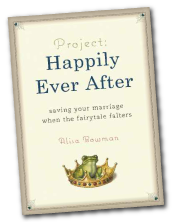Forgive me, I was wrong
 Scientists have recently uncovered the secret to an effective apology. It’s 100 percent intuitive. So why are so many of us doing it wrong?
Scientists have recently uncovered the secret to an effective apology. It’s 100 percent intuitive. So why are so many of us doing it wrong?Ohio State University researchers wanted to know what it was about certain apologies that worked – and other apologies that didn’t. So they tested how 755 people reacted to different kinds of apologies and they found that, for an apology to work, it needed to include at least two elements.
Acknowledgement of responsibility: “It’s my fault.”
An offer of repair: “What can I do to make this right?”
Some other factors were also helpful, but not anywhere near as important as the factors I just listed. They include an expression of regret (“I wish I hadn’t said that…”), an explanation of what went wrong, and a declaration of repentance.
It’s all pretty straight forward, especially if you think about what it would take to for someone to win you over after they’ve done you wrong. So why do so many of us screw it up? Think about times you’ve apologized. How often has your acknowledgment of responsibility gone something like this, “I’m sorry you were upset by what I said.” Some variations on this theme:
I’m sorry you are bothered by me leaving my stuff on the counter.
I’m sorry you are feeling so stressed out about this.
I’m sorry you had such high expectations of me.
I’m sorry you are so sensitive.
I’m sorry, but you …
I’m sorry we are fighting about this.
I’m sorry things got out of hand.
The list goes on. I’m sure you could add your own variations. (And please do, in the comments). These are fake apologies – cop outs, really. They acknowledge no personal responsibility. If anything, they place the responsibility on the other person, and that’s why they fail.
Why do we resort to the fake apology? Because no one likes conflict. No one enjoys being the object of someone else’s anger. No one wants to be the bad guy in someone else’s emotional continuum. We just want the disturbance – the anger, resentment, tears – to stop. So we offer the fake sorry as an olive branch, and we trick ourselves into believing that all we have to do is wave this branch and all of the anger, resentment, and stress will go away. “Look at me! I’m waving a branch! You should be happy now! Why are you not happy?!” It’s kind of like fixing a flat tire by yelling at it, “I’m sorry that pothole just blew a hole in you.” You can blame it on the pot hole all you want, but it doesn’t blow up the tire and get your car back on the road.
True apologies require humility and vulnerability. We must acknowledge that we are flawed, and that’s hard stuff. Yet, it’s easier than the alternative: pretending we are perfect. We also have to acknowledge that the other human being is just as important as we are — and just as deserving of happiness.
True apologies also require grit – because we often have to dig deep in order to make things right. When I tell my husband, “I’m sorry I forgot to do that” – I need to actually follow up by doing it now and in the future. I need to grow. I need to become a better me.
Which is beautiful.

Learn more about Alisa's book, the story of how she went from wishing her husband dead to falling back in love.
To find out how the book has changed lives click here.Want to discuss Project: Happily Ever After at book club or your church group? Click here for an entertaining guide.
Go to ProjectHappilyEverAfter.com for more marriage advice or to converse with other recovering divorce daydreamers.
Related posts:
The Affection-Starved Marriage








 Related StoriesMy Final Post EverWhat a Book Can Teach You About Taking a BathRelationship Rescue: What to Do When You No Longer Connect
Related StoriesMy Final Post EverWhat a Book Can Teach You About Taking a BathRelationship Rescue: What to Do When You No Longer Connect




